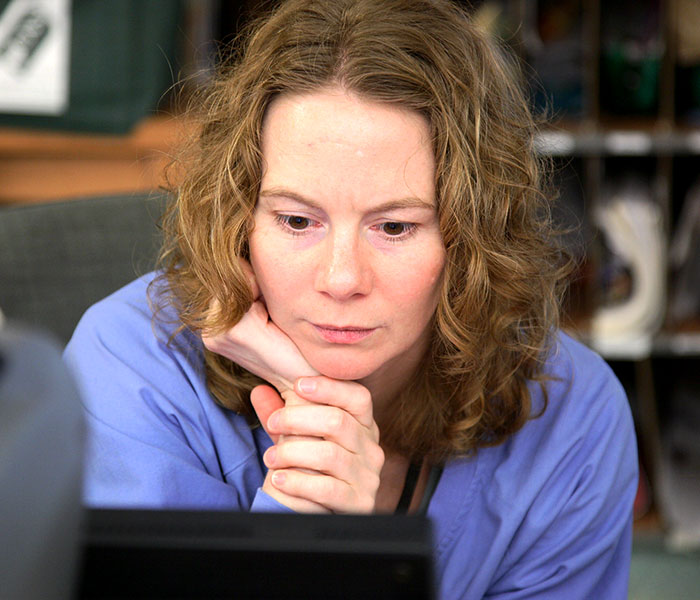The American Psychiatric Nurses Association (APNA) recently published three webinar courses that provide free CE to RNs, APRNs, and psychiatric-mental health nurses. The courses focus on the opioid epidemic that has taken hold in the United States. These courses aim to answer the question, “What can nurses do?” ONS was asked to review the series and provide feedback on content and applicability to practice.
Kathleen Wiley, RN, MSN, AOCNS®, an oncology clinical specialist at ONS, sat in on the review process and spoke to the value of these courses. “Opioid abuse has grown to epidemic proportions,” Wiley noted. “With 3.4 million nurses in the US representing the largest workforce in healthcare, education in the recognition and treatment of opioid abuse must reach nurses in order to have an impact.”
The RN-focused course provides 1.25 contact hours and looks to engage RNs through education about key morbidity and mortality statistics of opioid and heroin abuse. Moreover, the course details ways to increase access to treatments for opioid abuse disorder, along with ways to help patients choose and complete the right treatment for opioid abuse based on their individual needs.
The course focusing on APRN’s will include the basic content from the RN course, but will expand upon a number of details. According to the APNA’s website, the course “provides knowledge and strategies for identifying and selecting pharmacologic and psychotherapeutic treatment options within the APRN scope of practice for patients with opioid use disorders. It also covers considerations for treating additional special populations with opioid use disorder, including pregnant women and persons with comorbid HIV/AIDS and/or HCV.”
The growing number of opioid addictions will mean that many oncology nurses may treat patients facing this challenge at some point in the future. “As oncology nurses we are adept in advocating for pain management and the use of opioids as well as non-opioids in treatment plans. We encourage patients to use what medication is needed and that we will manage the risk of addiction or tolerance,” Wiley said. “What is sometimes foreign to us is the concept of a patient already suffering from opioid addiction who then requires cancer pain management. This education series helps to identify patients who may be suffering from addiction and presents the challenges of treatment.”
The American Association of Colleges of Nursing also offers a spectrum of resources for oncology nurse educators about the opioid epidemic, including guidelines, webinars, and tool kits.






